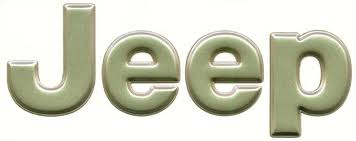Cherokee 4WD LHD L6-4.0L VIN S (2001)

Airbag Diagnostic Trouble Codes
Airbag diagnostic trouble codes consist of active and stored codes. If more than one code exists, diagnostic priority should be given to the active
code(s).
Each diagnostic trouble code is diagnosed by following a specific testing procedure. The diagnostic test procedures contain step-by-step
instructions for determining the cause of the trouble codes. It is not necessary to perform all of the tests in this book to diagnose an individual
code.
Active diagnostic trouble codes for the airbag system are not permanent and will change the moment the reason for the code is corrected. In certain
test procedures, diagnostic trouble codes are used as a diagnostic tool.
Active Codes
An active trouble code indicates an ongoing malfunction. This means that the defect is currently there every time the airbag control module checks
that circuit/function. It is impossible to erase an active code; active codes automatically erase by themselves when the reason for the code has been
corrected.
With the exception of the warning lamp trouble codes or malfunctions, when a malfunction is detected the AIRBAG lamp remains lit for a
minimum of 12 seconds or as long as the malfunction is present.
Stored Codes
Airbag codes are automatically stored in the ACM's memory after 1 minute of occurance or when the ignition is turned OFF. The exception is the
"Loss of Ignition Run Only" code which is an active code only.
A "stored" code indicates there was an active code present at some time. However, the code currently may not be present as an active code
although another active code could be.
When a trouble occurs, the AIRBAG warning lamp illuminates for 12 seconds minimum (even if the problem existed for less than 12 seconds).
The code is stored, along with the time in minutes it was active, and the number of times the ignition has been cycled since the problem was last
detected.
The minimum time shown for any code will be one minute, even if the code was actually present for less than one minute. Thus, the time shown
for a code that was present for two minutes 13 seconds, for example, would be three minutes.
If a malfunction is detected, a diagnostic trouble code is stored and will remain stored as long as the malfunction exists. When and if the
malfunction ceases to exist, an ignition cycle count will be initiated for that code. If the ignition cycle count reaches 100 without a recurrence of
that same malfunction, that diagnostic trouble code is erased and that ignition cycle counter is reset to zero. If the malfunction recurs before the
count reaches 100, then the ignition cycle counter will be reset and the diagnostic trouble code will continue to be a stored code.
If a malfunction is not active while performing a diagnostic text procedure, the active code diagnostic test will not locate the source of the
problem. In this case, the stored code can indicate an area to inspect.
If no obvious problems are found, erase stored codes. With the ignition "ON," wiggle the wire harness and connectors, then rotate the steering
wheel from stop to stop. Recheck for codes periodically as you work through the system. This procedure may uncover a malfunction that is
difficult to locate.
Part 1B
Airbag Trouble Codes
The airbag control module may report any of the following diagnostic trouble codes. For the following active or stored codes, replace the Airbag
Control Module (ACM):
-
AECM Accelerometer
-
Internal Diagnostic 1
-
Internal Diagnostic 2
-
AECM Output Driver
-
AECM Stored Energy Logic
-
AECM Stored Energy Driver
-
AECM Stored Energy Passenger
-
Internal Diagnostic 3
-
Internal Diagnostic 4
-
Safing Sensor Shorted
For these codes, refer to the appropriate diagnostic procedure:
-
Driver Squib Circuit Open
-
Driver Squib Circuit Shorted
-
Loss of Ignition Run Only
